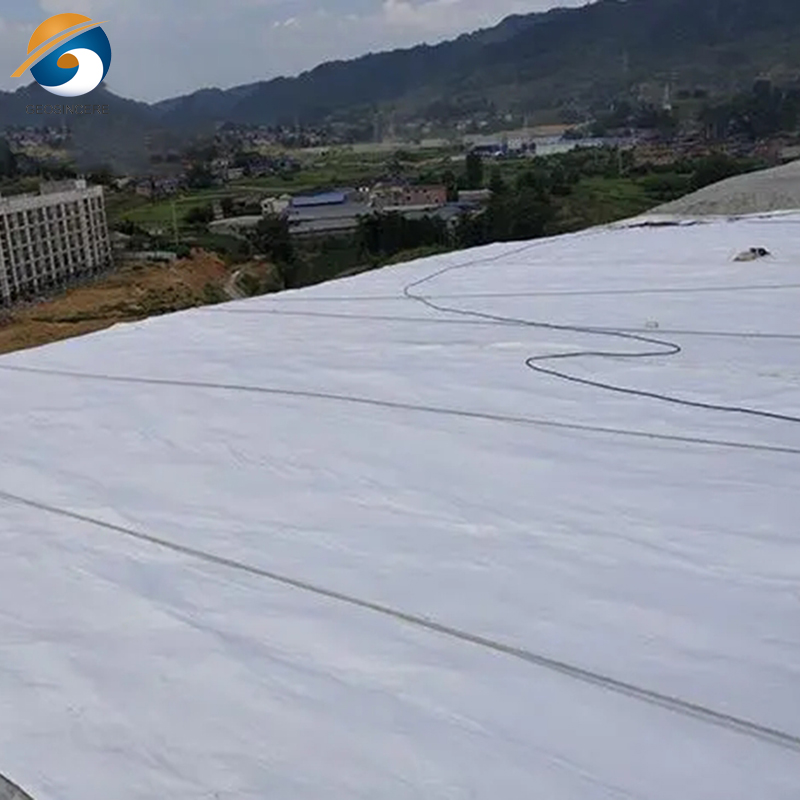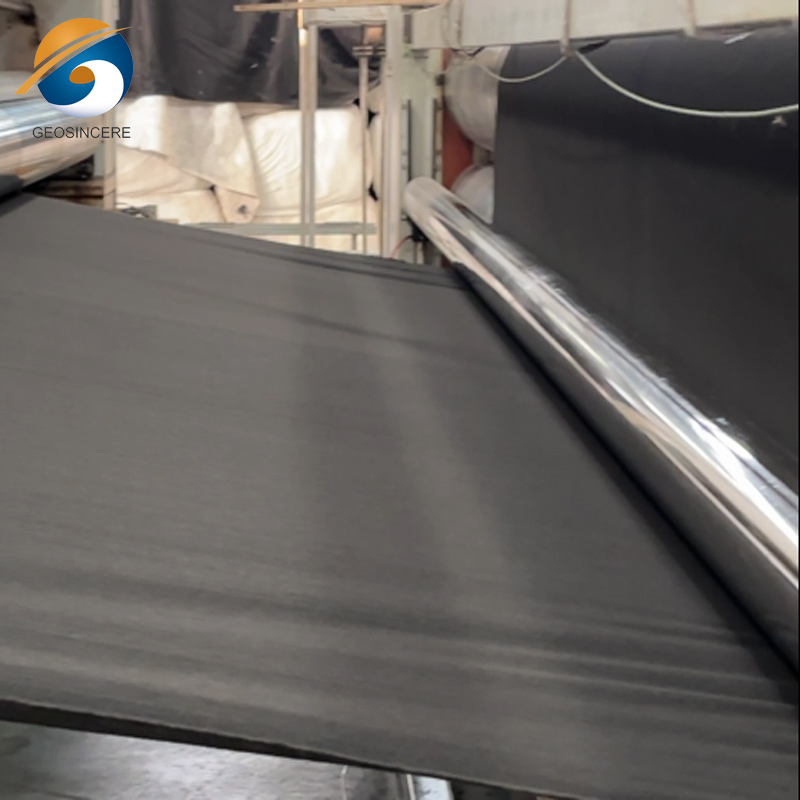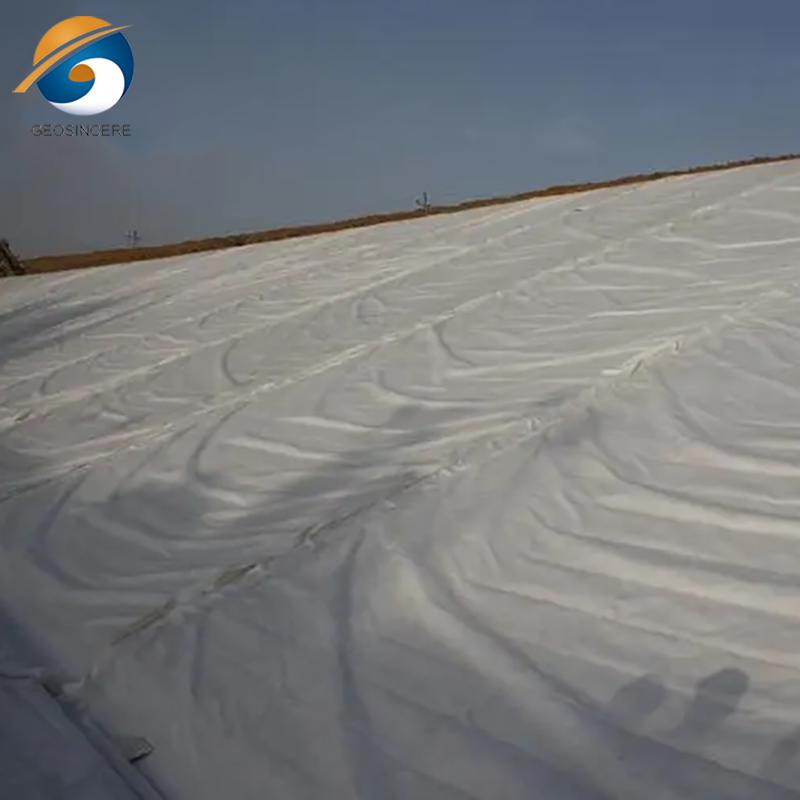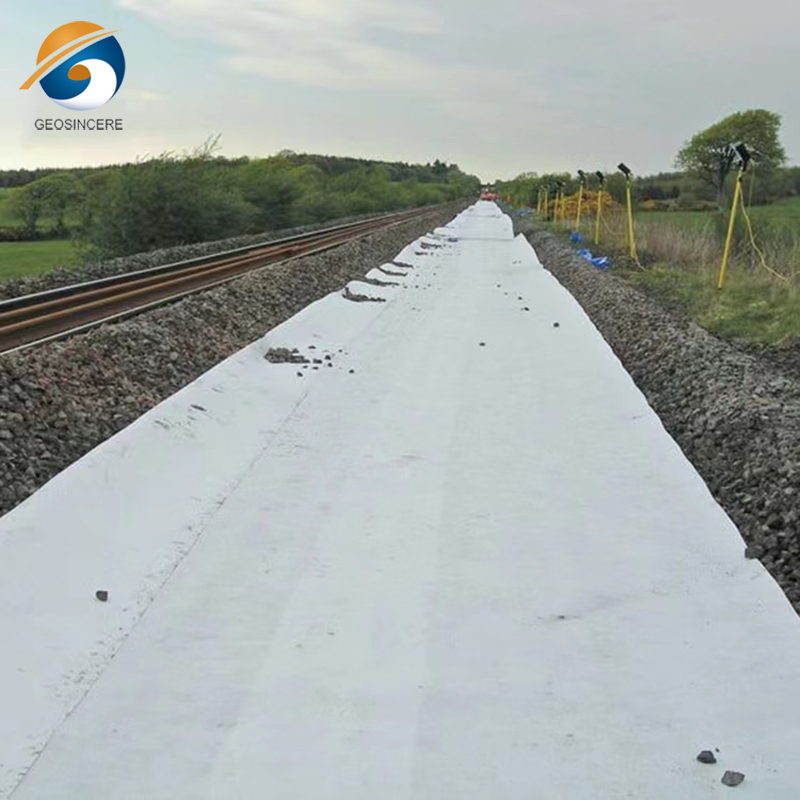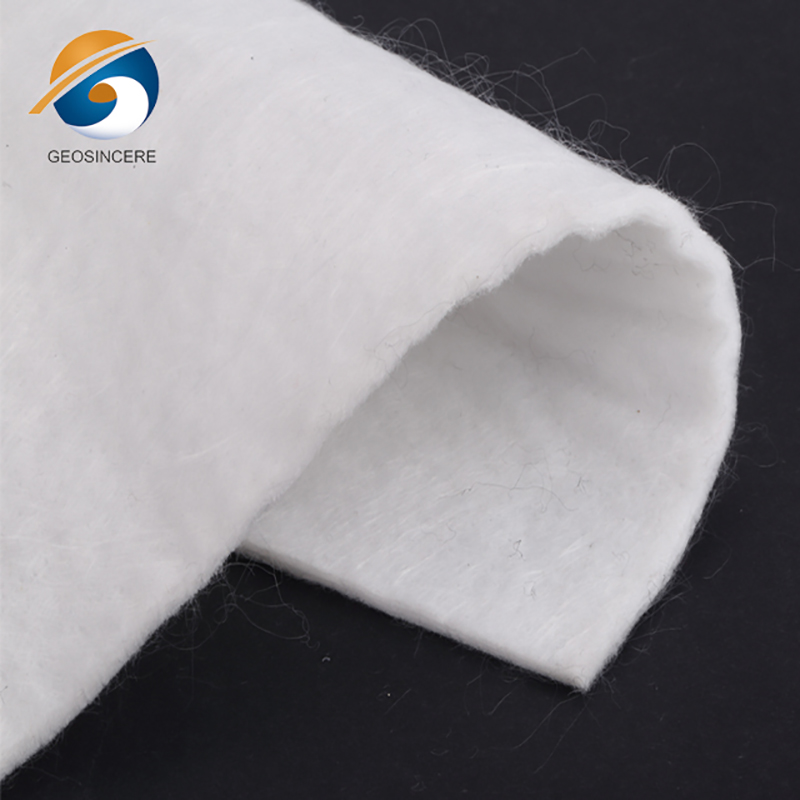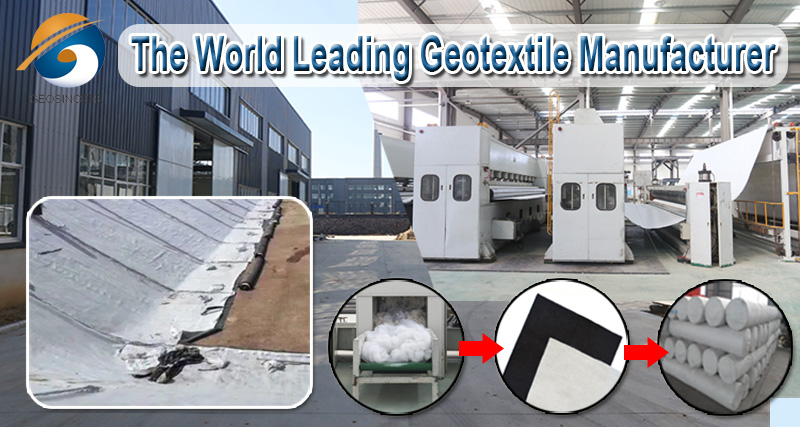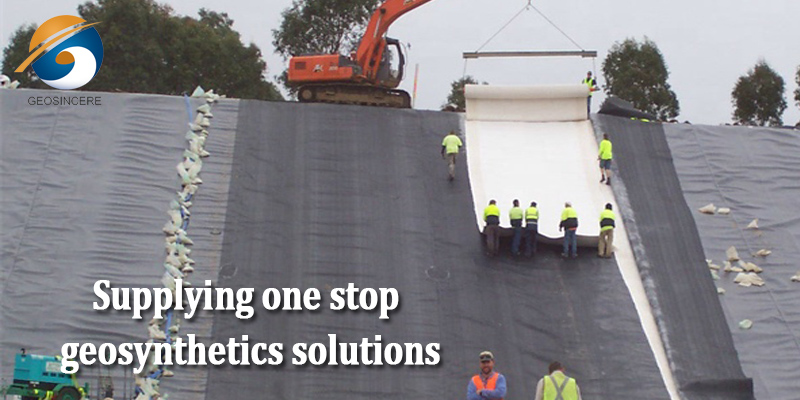Permeable Polyester Geotextile Non Woven Filter Fabric
Permeable polyester geotextile non-woven filter fabric refers to a type of geotextile material made from permeable polyester fibers, which is designed to function as a filter fabric in various geotechnical and civil engineering applications. Permeable polyester geotextile filter fabric is made from polyester fibers. Polyester is a synthetic material known for its durability, resistance to biological degradation, and chemical stability.
The primary function of permeable polyester geotextile filter fabric is to act as a filter by allowing water to pass through while preventing the migration of fine soil particles. It helps to maintain the long-term effectiveness of drainage systems by preventing clogging and soil migration.
When it comes to sustainable and efficient soil stabilization, filtration, and drainage systems, Permeable Polyester Geotextile Non Woven Filter Fabric stands out as one of the most versatile and high-performance materials in modern civil engineering and landscaping.
Whether you're a contractor, designer, or landscape architect, understanding the benefits and applications of Permeable Polyester Geotextile Non Woven Filter Fabric can save you time, enhance durability, and reduce long-term maintenance costs.
What Is Permeable Polyester Geotextile Non Woven Filter Fabric?
Permeable Polyester Geotextile Non Woven Filter Fabric is a synthetic textile product made from 100% polyester fibers that are mechanically or thermally bonded. Unlike woven geotextiles, non-woven fabrics offer superior permeability, flexibility, and filtration capacity. This makes them ideal for a wide range of civil, environmental, and geotechnical applications.
The fabric is designed to allow water to pass through while trapping soil particles, preventing erosion and promoting drainage.
Key Features of Permeable Polyester Geotextile Non Woven Filter Fabric
✅ Excellent Permeability: Designed to allow optimal water flow while blocking soil particles.
✅ High Tensile Strength: Polyester fibers provide long-lasting resistance to puncture and stress.
✅ UV and Chemical Resistance: Excellent durability even under harsh environmental conditions.
✅ Lightweight and Easy to Install: Reduces labor time and simplifies large-scale applications.
✅ Non-Biodegradable: Offers long-term performance in underground or exposed environments.
These features make Permeable Polyester Geotextile Non Woven Filter Fabric a preferred choice for contractors and engineers who need a balance of strength, permeability, and cost-effectiveness.
Top Applications
The versatility of Permeable Polyester Geotextile Non Woven Filter Fabric allows it to be used in multiple industries:
1. Road Construction and Pavement Stabilization
It prevents soil mixing and ensures subgrade stability, especially in high-traffic areas.
2. Drainage Systems
Used as a filtration layer in French drains, retaining walls, and stormwater systems.
3. Landscaping and Erosion Control
Essential for slope protection, shoreline stabilization, and landscaped beds.
4. Railway and Airport Foundations
Improves load-bearing capacity and mitigates settlement issues.
5. Landfills and Environmental Protection
Acts as a filtration and separation layer in geomembrane lining systems.
Why Choose Polyester Over Polypropylene?
While both materials are commonly used in geotextiles, polyester offers better long-term resistance to creep (deformation under sustained load) and superior performance in acidic environments. Permeable Polyester Geotextile Non Woven Filter Fabric is also more dimensionally stable, ensuring consistent filtration performance.
Benefits of Using Permeable Polyester Geotextile Non Woven Filter Fabric
Cost-Effective Long-Term Solution: Reduces the need for expensive maintenance and replacements.
Eco-Friendly: Helps prevent soil erosion and supports sustainable drainage.
Versatile Performance: Works well across diverse soil types, climates, and load conditions.
Time-Saving: Quick and easy to deploy, especially in large construction or landscaping projects.
These benefits make Permeable Polyester Geotextile Non Woven Filter Fabric the go-to material for professionals seeking performance and reliability.
How to Choose the Right Product
When selecting Permeable Polyester Geotextile Non Woven Filter Fabric, consider:
GSM (Grams per Square Meter): Higher GSM offers greater strength and filtration efficiency.
Roll Width and Length: Choose based on project size and installation equipment.
Water Flow Rate and Permittivity: Must match the drainage requirements of the project.
Tensile and Tear Strength: Essential for structural applications or high-load areas.
Consult with your supplier to ensure the specifications meet your engineering design standards.
Conclusion: Why Permeable Polyester Geotextile Non Woven Filter Fabric Matters
If you're looking for an effective, durable, and eco-conscious solution for drainage, filtration, or soil stabilization, Permeable Polyester Geotextile Non Woven Filter Fabric is the superior choice. Its combination of strength, permeability, and long-term durability makes it ideal for a wide range of applications in both commercial and residential projects.
By investing in Permeable Polyester Geotextile Non Woven Filter Fabric, you ensure structural integrity, environmental safety, and long-term performance—making it a wise decision for any modern infrastructure project.
Permeable geotextile filter fabric is typically made from polyester fibers. Polyester offers excellent strength, durability, and chemical resistance, making it suitable for geotechnical applications. It provides good resistance to biological degradation and has a high melting point, ensuring its performance in various environmental conditions.
Permeable: The fabric allows water to flow through, facilitating effective drainage.
Filtration: It provides excellent filtration properties, preventing the migration of soil particles and maintaining the performance of drainage systems.
Durability: Polyester fibers offer high tensile strength, puncture resistance, and resistance to degradation, ensuring long-term performance in geotechnical applications.
Chemical stability: Polyester is resistant to chemical degradation, making it suitable for applications where exposure to various chemicals is expected.

